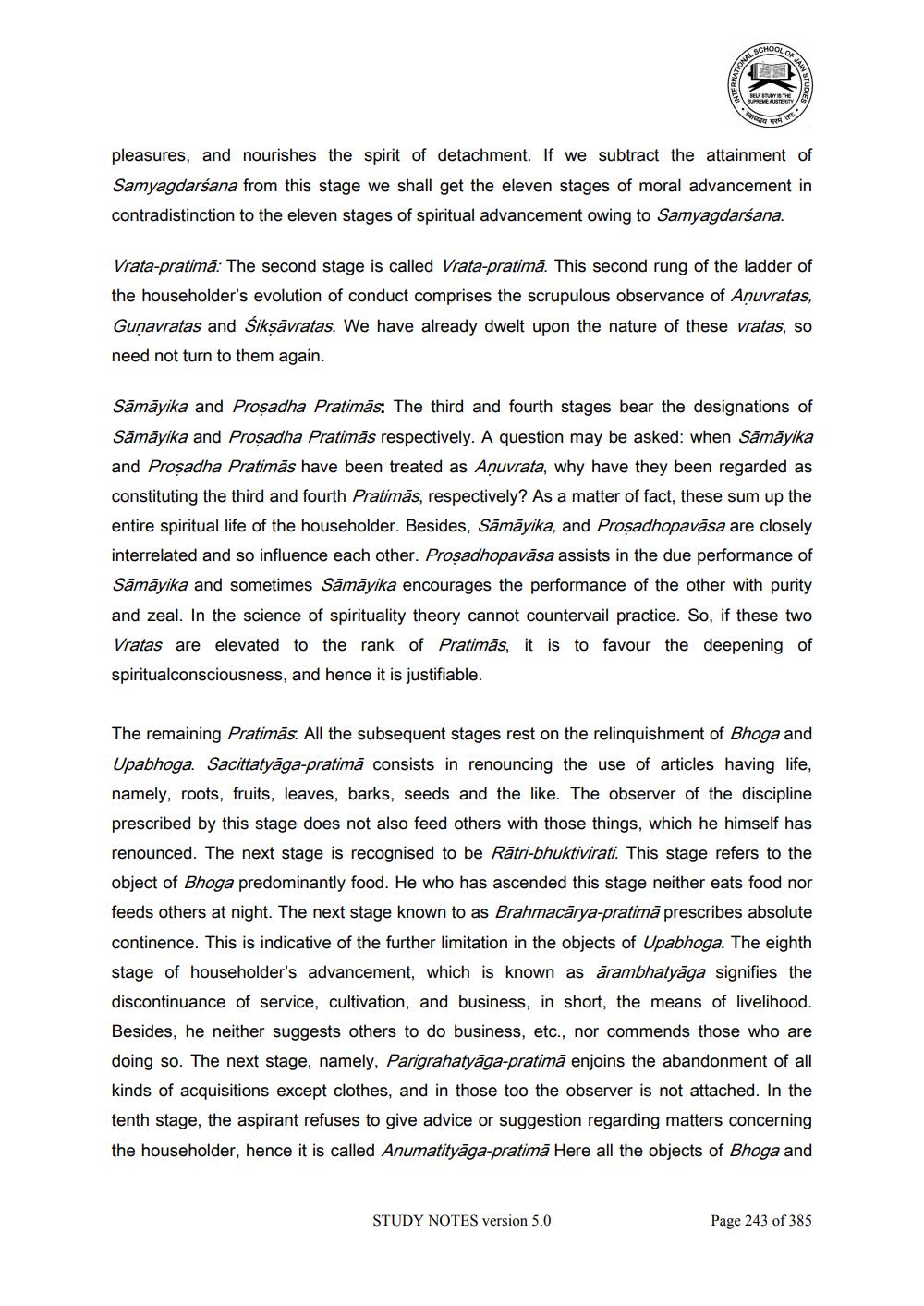________________
SELF BUDYIS THE
pleasures, and nourishes the spirit of detachment. If we subtract the attainment of Samyagdarśana from this stage we shall get the eleven stages of moral advancement in contradistinction to the eleven stages of spiritual advancement owing to Samyagdarśana.
Vrata-pratimā: The second stage is called Vrata-pratimā. This second rung of the ladder of the householder's evolution of conduct comprises the scrupulous observance of Anuvratas, Gunavratas and Sikşāvratas. We have already dwelt upon the nature of these vratas, so need not turn to them again.
Sāmāyika and Proşadha Pratimās. The third and fourth stages bear the designations of Sāmāyika and Prosadha Pratimās respectively. A question may be asked: when Sāmāyika and Proşadha Pratimās have been treated as Anuvrata, why have they been regarded as constituting the third and fourth Pratimās, respectively? As a matter of fact, these sum up the entire spiritual life of the householder. Besides, Sāmāyika, and Proşadhopavāsa are closely interrelated and so influence each other. Prosadhopavāsa assists in the due performance of Sāmāyika and sometimes Sāmāyika encourages the performance of the other with purity and zeal. In the science of spirituality theory cannot countervail practice. So, if these two Vratas are elevated to the rank of Pratimās, it is to favour the deepening of spiritualconsciousness, and hence it is justifiable.
The remaining Pratimās. All the subsequent stages rest on the relinquishment of Bhoga and Upabhoga. Sacittatyāga-pratimă consists in renouncing the use of articles having life, namely, roots, fruits, leaves, barks, seeds and the like. The observer of the discipline prescribed by this stage does not also feed others with those things, which he himself has renounced. The next stage is recognised to be Rātri-bhuktivirati. This stage refers to the object of Bhoga predominantly food. He who has ascended this stage neither eats food nor feeds others at night. The next stage known to as Brahmacārya-pratimā prescribes absolute continence. This is indicative of the further limitation in the objects of Upabhoga. The eighth stage of householder's advancement, which is known as ārambhatyāga signifies the discontinuance of service, cultivation, and business, in short, the means of livelihood. Besides, he neither suggests others to do business, etc., nor commends those who are doing so. The next stage, namely, Parigrahatyāga-pratimā enjoins the abandonment of all kinds of acquisitions except clothes, and in those too the observer is not attached. In the tenth stage, the aspirant refuses to give advice or suggestion regarding matters concerning the householder, hence it is called Anumatityāga-pratimā Here all the objects of Bhoga and
STUDY NOTES version 5.0
Page 243 of 385




